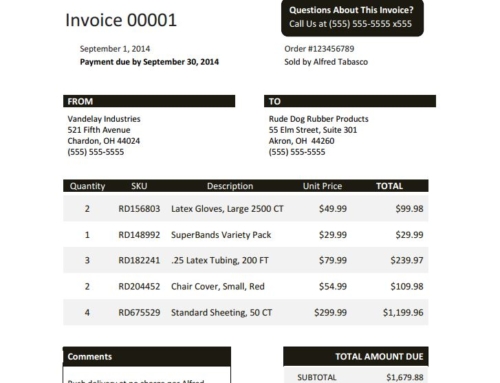When dealing with a customer’s failure to pay on time, it can be an extremely frustrating situation. Often times we send an email or make a phone call out of anger that we later regret our tone or use of words. What most collection representatives don’t think about is that these angry and regretful emails aren’t just affecting our personal guilt, but could one day effect the company and its reputation if the emails end up in a deposition.Anything that you write in an email or send in a text message to a customer or vendor is a written record and can be brought up in court. Thanks to cloud storage, even emails that have been deleted or were sent months and years ago can surface and come to haunt you. If a customer is disputing an invoice and the issue winds up in court, any emails or text messages sent can be used, and even twisted, to the advantage of the opposing party.
Below is a guide to follow when emailing customers and vendors to be sure your email is deposition proof.
- TAKE A MINUTE BEFORE SENDING
If you are angry, frustrated or upset ALWAYS save the email as a draft and come back to it later after you have had time to cool down. You will often thank yourself for not having sent that email, which could have been over the top and hurtful. Make sure to ask yourself before sending this email: Is there anything in this email that could be misconstrued or used against me? Is anything in this email driven by my emotions? Is this email necessary? - COULD THIS BE A BETTER PHONE CALL?
Email may be the most convenient way to get in contact with a customer or vendor, but it’s not always the best means of communicating. Sometimes information and issues are best dealt with over the phone. If the email starts to get lengthy and full of important numbers and information, maybe you should just pick up the phone. - WATCH YOUR LANGUAGE
Most collection professionals see this as an obvious, but you should never curse in an email with a customer or vendor – no matter how angry you get. Not only will it be embarrassing during a deposition when those emails are brought up, but it could be potentially damaging for your company. Even if these emails aren’t to the customer, but a quick blow off of steam to a co-worker, it is best to talk to them in person that to have a written record of you calling a customer an “idiot”. - WATCH OUT FOR ACCIDENTAL NEW CONTRACTS
Sometimes a customer misses their agreed upon payment terms and we give them a one-time extension pass. Without even realizing it, you may have completely changed their contractual obligations in one email. According to Karen L. Hart, a litigation partner at Bell Nunnally & Martin LLP., courts have upheld an email exchange as a modification to a contract. Even an email signature block has been recognized as a legal “signature” in certain states. As long as an offer, acceptance and consideration are present, you may be accidentally changing this customer’s contract. Make sure to speak with the credit manager or other superiors before engaging in any emails about changes to payment terms.
Email may seem like a relaxed way to discuss matters with a customer or vendor, but they should be taken extremely seriously. Anything you have in writing can be brought up in a deposition one day and what you said could become public record. Treat every email you craft like it is under a microscope. One way to combat potential mistakes is by using carefully crafted email templates, instead of coming up with a response on the fly.




